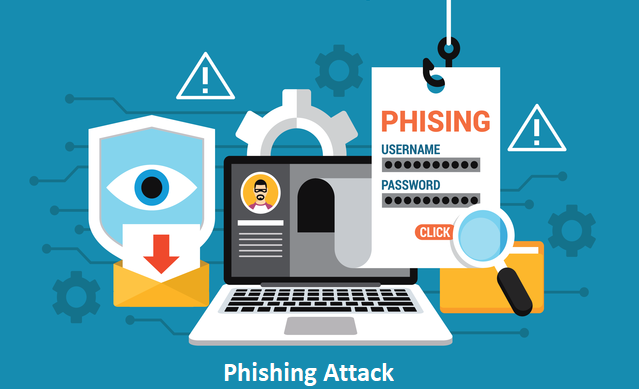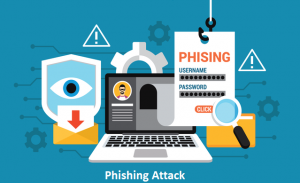How to protect yourself from Phishing Scams?

A phishing scam is a fraud that takes various forms. It uses online techniques such as fake emails, pop-up ads or phone calls to infiltrate an enterprise and use their sensitive data for illegal means. The aim of these attacks is to get their victims to take the bait. Since it is considered to be an easy way to enter into an enterprise, phishing attacks continue to rapidly spread at an alarming rate. As the tech-world continues to open doors to new technical methodologies, it has become challenging to detect these scams. The most highlighting phishing scams were faced by eBay and Anthem where the cyber attackers sent fake warnings to users to change their password swiftly redirecting them to a bogus site where their sensitive information was being recorded.

Phishers are also called identity thieves or con artists. They use spam, malicious websites, email messages, and instant messages to trap people into revealing sensitive information. Banking information, credit card accounts, usernames, and passwords are just some of the information phishers seek to exploit. It is very crucial to identify phishing scams as they are portrayed to come from a reliable source. Therefore, it is important to spot these emails and carefully handle it to stay secure and protected. Here is a list of five common phishing scams and ways to help protect yourself against falling for them.
-
Email Phishing Scam
This scam consists of a forged email message depicted to come from a known company to a recipient. The goal of these scams is to illegally gather personal or financial information of the recipient. A basic phishing email consists of at least one fake link to a website that is imitated as a legitimate business site. The message entraps the recipient to enter their personal information that can be used for identity theft. To protect yourself against these email phishing scams:

- Do not click any links or download any attachments in the suspicious email. Instead, open up your web browser and go to the website in question by typing it into the URL bar.
- Be cautious and attentive while examining the email. Phishers tend to trick using the same logos as the enterprise as well as spoofed email addresses, which are similar to the actual company’s address, with few misspelled words.
-
Vishing Scams
Vishing (voice or VoIP phishing) is the voice version of email phishing. Instead of an email, scammers conspire to gather personal information of individuals over the phone. Phishers pretend to be a representative from a reliable company and entice people for a fake interesting offer or an opportunity to grab their financial details to be used to extortion later. Here’s how you can encounter these phone calls to protect yourself:
- Never give personal information over the phone. You can ask for the verification or hang up the call before fully corroborating it with the legitimate company.
- Never call the number the caller provides. Fake websites often contain misspellings and other bogus signs.
-
Tech support cold call scams
These calls target the potential victim claiming to be from a reputable security company. They falsely claim to have found malware on the victim’s computer and manipulate him to install a type of remote desktop software in order to offer the solution. This allows the attacker access to the computer in order to install real malware. Look at How to help protect yourself against tech support call scams:

Login into account in email envelope and fishing hook. Phishing scam, hacker attack and web security concept. online scam and steal. vector illustration in flat design
- Check and verify the number before someone calls and claims to be an associate of a certain reputable company.
- Never allow remote access to your computer
-
Pop-up warning scams
Pop-up ads suddenly appear in the form of a small graphic template while browsing the internet. Cyber attackers make pop-ups look like they come from a trusted source. It can contain irrelevant content such as a message stating that the computer is infected with malware and offer a phone number for help with removing the malware. It is very important to keep an eye for such ads. Here’s how you can distinguish between genuine and unreliable pop-up ads:
- Carefully examine the whole ad for poor spelling, unprofessional imagery, and bad grammar.
- Open up your antivirus software and run a system scan in case of a doubt.
-
Fake search results scams
Fraudulent enterprises use paid search ads for their “support services” as false alarms. These paid listings can appear at the top of a search results page, offering promising grants in order to lure a victim into clicking the ad. The malware starts to download as soon as you click on these bogus ads. This is a commonly used phishing scam and must be prevented to ensure a hassle free search. In order to keep protected from these scams, examine the URL closely. Creators of fake websites use typo-squatting, where they register a domain name that looks similar to the URL of the reliable site they’re mimicking.

Conclusion
With the advent of new tactics in the tech world, there has been a significant increase in the number of phishers that exploit your sensitive information to the core. It is very important to keep your data safe, secure and protected. Use Anti-virus software or extensions that can be added on to your browsers for safe browsing. Try to adopt the precautionary measures discussed above to ensure your organization does not become the next target of the phishing predators out there.


